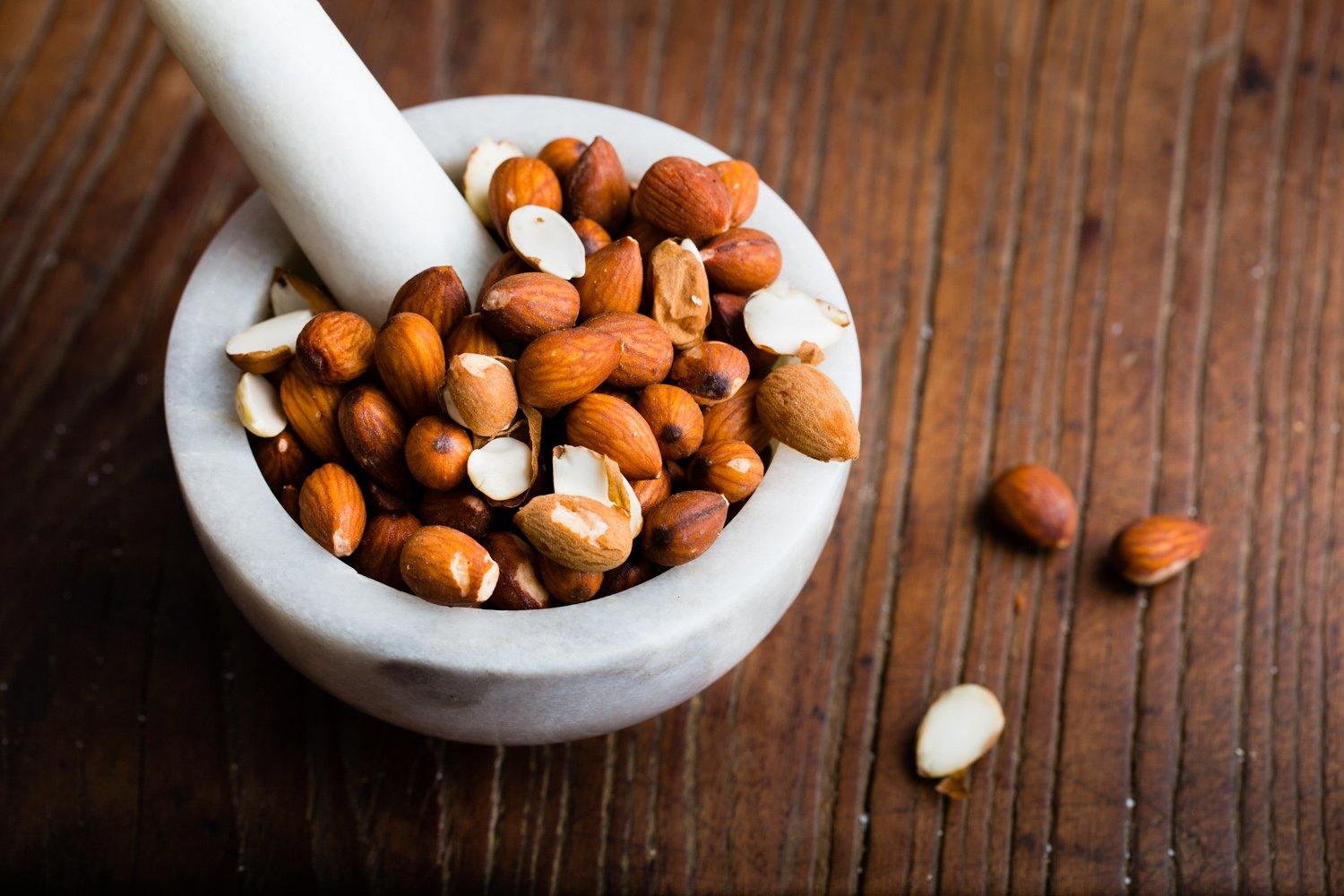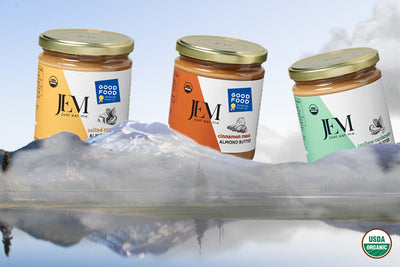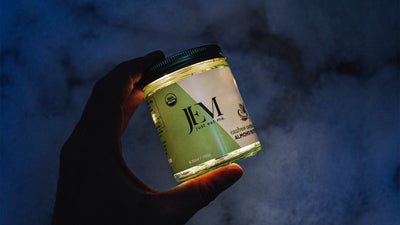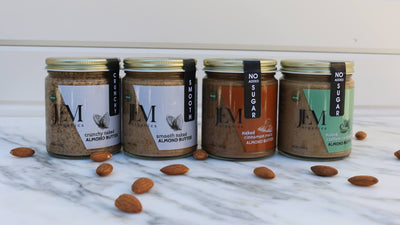Max Goldberg from livingmaxwell.com wrote up a fantastic article on why we should be choosing organic almonds. Organic ingredients has always been a founding principle of JEM Organics and something we never have been, and never will be, willing to compromise on. Every nut used is USDA Certified Organic and then soaked in water with pink Himalayan salt for 24 hours. Next, the nuts are dehydrate using convectional heat. However, we do not roast so that every nutrient is preserved.
Because your health and the health of our planet is our #1 priority, JEM's CEO, Jim Bednark, is always staying up to date on all things organic and will continue to make sure all of JEM's products are safe, healthy and ridiculously delicious.
Why Organic Almonds? Because of the Super-Toxic Fumigant Propylene Oxide
May 29, 2018

As more and more people are moving toward a plant-based diet and migrating away from animal products, organic cannot be forgotten in this equation. Unfortunately, I see far too many people who think that as long as it is plant-based, that is sufficient. It’s not.
Case in point: almonds.
In the early 2000s, there were a few outbreaks of salmonella traced to raw almonds from California, a state where nearly 100% of America’s almonds are grown. As a result, the USDA implemented a rule that required all almonds grown in California to be pasteurized. This holds true for both organic and non-organic varieties.
What is essential for people to understand are the methods that can be used to pasteurize the nuts.
“California can use steaming, steam-vacuuming technology, blanching, dry-roasting, oil roasting or propylene oxide. However, propylene oxide, also known as PPO, is prohibited in organic,” said Wendy Larsen, General Manager at Big Tree Organic Farms, a California-based grower and manufacturer of organic almonds and almond products.
There is a good reason why the spraying of PPO is banned in organic — it is a super-toxic chemical that is used in foams in furniture and car seats, building insulation, waterproof clothing and aircraft de-icers.
Furthermore, the American Cancer Society says in its National Toxicology Program 14th Report on Carcinogens, PPO is “reasonably anticipated to be a human carcinogen.” That means it is reasonable to assume that PPO causes cancer to humans. Furthermore, the U.S. Environmental Protection Agency (EPA) says that PPO is a “probable human carcinogen.”
Does this mean that all conventionally-grown almonds, almond butters, almond milks and other almond products apply PPO in order to pasteurize the almonds?
Not necessarily.
There are companies that disclose on their websites that they do not use PPO on their conventional almonds, such as what supermarket chain Natural Grocers says about their almonds sold in bulk. However, unless you are going to contact the manufacturer and ask them directly, you just do not know. This is particularly difficult when you are at a restaurant, and you have absolutely no idea what the brand is. The bottom line is that all conventionally-grown almonds can be treated with PPO.
Even if the conventional almonds are PPO-free, they are allowed to be sprayed with other super-toxic chemicals, such as glyphosate — the primary ingredient in Monsanto’s RoundUp. And according to EPA documents from October 5th, 2015, 85% of almonds are treated with glyphosate. Why should this concern you?
The State of California said that glyphosate is known “to cause cancer.”
Because of the salmonella outbreak many years ago, even California-grown organic almonds must be pasteurized. So, the question that some people may be asking is: what do you do if you want organic almonds that are truly raw and unpasteurized?
There are options.
Because of the Roadside Stand Exemption in California’s almond pasteurization law, consumers can purchase up to 100 pounds of organic, unpasteurized almonds per day directly from farmers. Or, you can purchase organic, unpasteurized almonds which have been grown abroad, such as from Italy.
If buying in bulk is too inconvenient, there are companies that source their almonds from overseas.
Jem Organics, a fantastic brand of organic nut butters, purchases its raw, organic almonds from Spain.
Whether you prefer pasteurized or unpasteurized almonds, one thing is certain — they must be organic.
------------------------------------
Find the original article here: https://livingmaxwell.com/conventional-almonds-propylene-oxide-ppo-health-risks#more-12116






